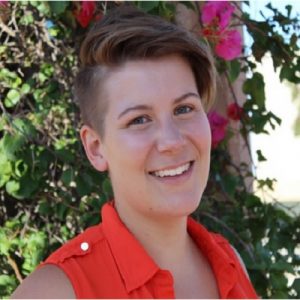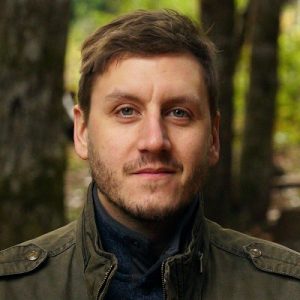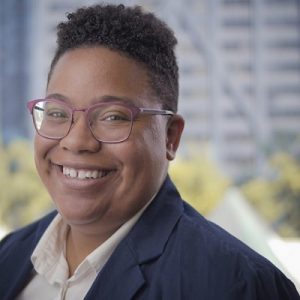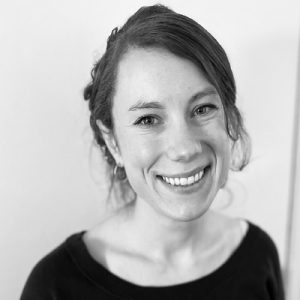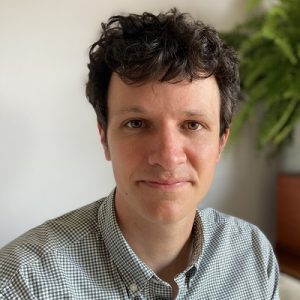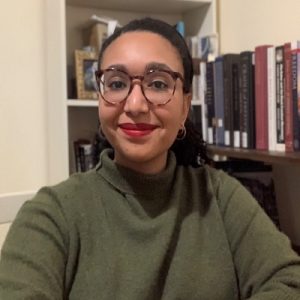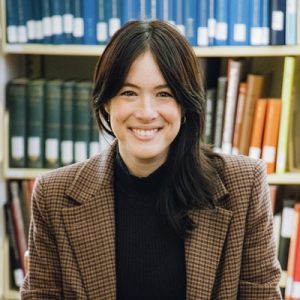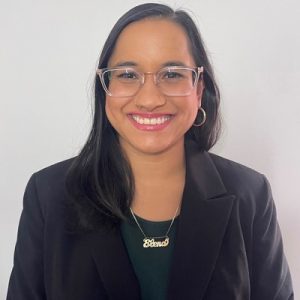CES Fellows 2022-2023
2022-2023 CES Fellows
Melanie Brazell
As a Chancellor’s Fellow, Melanie Brazzell studies gender, critical criminology, and social movements. Melanie’s dissertation focuses on transformative justice alternatives to prison and policing, particularly for gender-based violence. Drawing on their involvement in the feminist anti-violence movement for over fifteen years in both the U.S. and Germany, Melanie’s participatory research and community engagement are housed within the “What Really Makes Us Safe?” Project.
Melanie is currently exploring research as a movement building tool through collaborations with the Momentum Community, the Just Beginnings Collaborative, and the Realizing Democracy Project. Together with movement partners like Sunrise and Color Of Change, Melanie recently authored the Building Structure Shapes report. To continue this work, Melanie joined the SNF Agora Institute’s P3 Lab at Johns Hopkins University as a pre-doctoral fellow this academic year (2021-2022).
Melanie is also passionate about pedagogy, having worked for eight years in Berlin as a teacher at a co-operative, democratic high school for non-traditional adult students, which won the Bosch Foundation’s second place prize for best school in Germany in 2016. Melanie received a Bachelor’s degree from Columbia University and a Master’s from Humboldt University in Berlin, Germany.
Nicole Foti
Nicole Foti's research analyzes the emergent movement to apply open-source principles to pharmaceutical research and examines potential emancipatory practices in the production of biomedical knowledge in a community-based medicine initiative. Her research illuminates alternative ways to organize scientific knowledge production and explores the potential for these projects to address the injustices of the political economy of health and illness.
The study draws on over 300 hours of ethnographic observations with the Open Insulin Project and offers a novel contribution to scholarship on the unique challenges facing expert-derived resources such as biomedical knowledge and the role of governance and power sharing in community-based medicine. Nicole has also published a policy brief that describes factors driving the insulin crisis in the U.S. – where many diabetics struggle to afford insulin.
Prior to graduate school, Nicole was at a HIV/AIDS nonprofit organization and worked closely with people living with HIV to access medication. This direct-service work informs much of her research program and desire to bridge research with activism. Nicole has bachelor's degrees in Biology from Oregon State University and in Women’s and Gender Studies from University of Oregon.
Nora Kassner
Nora Kassner (she/they) is a doctoral emphasis in Feminist Studies. Her dissertation, titled “Hard to Place: Queer Foster Families and the Remaking of U.S. Family Policy, 1975-1996,” explores the transformation of U.S. family policy in the late 20th century through the experiences of queer foster parents and their foster children.
As the first historical study of queer people in the U.S. foster system, Nora’s dissertation provides a unique lens into the debate over the transformation of the American family. Drawing on original oral history interviews and archival resources, they examine the processes by which shifting notions of race, sexuality, and disability remade American foster care and American family policy more broadly. Nora’s work has been supported by the WW Doctoral Dissertation Fellowship in Women’s Studies from the Institute for Citizens & Scholars, the ONE Archives Foundation, and the University of California-Santa Barbara.
Prior to attending graduate school, Nora worked as a community organizer, and a commitment to publicly-engaged scholarship remains central to their work. Nora received an MA in history from University of California, Santa Barbara and a BA in Classics from Macalester College.
Bruno Seraphin
Bruno Seraphin is also a graduate minor in American Indian and Indigenous studies. His research focuses on environmental and climate justice movements in the U.S. northwest, imperialism and militarism, and film methodologies. His dissertation examines the politics of wildfire and prescribed burning in Karuk aboriginal territory in the unsettled colonial present.
As wildfires throughout the U.S. west intensify, Indigenous fire practitioners fight for sovereignty and survivance while navigating between, on one side, a militarized firefighting apparatus premised on the settler state’s entitlement to environmental authority, and on the other side, a broad-based colonial impulse to appropriate and commodify Indigenous knowledge. Through participant observation, collaborative filmmaking, and interviews, Bruno’s dissertation tracks how settler colonial relations of power and property can be reaffirmed or disrupted by the increasing frequency of environmental crises. A committee of Karuk cultural practitioners advises on the work.
A settler raised on occupied Nipmuc land in Massachusetts, Bruno is an award-winning filmmaker with a BFA in film from New York University and an MA in folklore from the University of Oregon. Bruno’s project has received support from the Wenner-Gren Foundation and Cornell’s Reppy Institute for Peace and Conflict Studies.
Eshe Sherley
Eshe Sherley is also a member of the Certificate Program in Women’s and Gender Studies at the University of Michigan.
Her dissertation, “Care in Crisis: Black Women and the Politics of Labor in Atlanta, 1965-1985,” examines how working-class Black women organized themselves in domestic worker unions, welfare rights organizations, and as prisoners and mothers to challenge the politics of austerity and to advocate for policies that would value both their waged and unwaged caring labor. Her work has been supported by the National Center for Institutional Diversity and the Institute for Research on Women and Gender at the University of Michigan.
Eshe is a recipient of the 2021 Reed Fink Award in Southern Labor History from Georgia State University. She holds an M.A. in History from the University of Michigan and a B.A. in African American Studies from Yale University.
Jennifer Standish
Jennifer Standish studies the social, legal, and political history of labor unions in the 20th century U.S. South. Her dissertation focuses on the history of “Right-to-Work” laws and union security agreements. Union organizers argue that these laws create a “free rider” problem, disincentivizing union participation and draining unions of their members, finances, and potential to strike. She is currently exploring how early iterations of these laws were rooted in agricultural industries and WWII labor coordination and management.
Jennifer’s master’s research focused on how Jim Crow laws—and their formal dissolution in the 1960s—shaped labor solidarities. Witnessing workplace surveillance, racism within and outside of labor organizing, and legal restrictions on worker activism in her own workplace cemented her interest in studying legal constraints to worker organizing on and off the job.
Jennifer received her B.A. from the University of Chicago in 2015. As a graduate student, she has enjoyed teaching undergraduate students in the history department and through the Southern Oral History Program. Her pedagogical interests extend beyond the college level, and she has been lucky to also work with North Carolina educators and teachers on K-12 curriculum development for U.S. history.
Brian Walter
Brian Walter’s research explores how the impacts of climate-change-driven sea-level rise are racialized and compounded by infrastructure and heritage preservation in the South Carolina Lowcountry. The Lowcountry is a region constituted by slavery and the tidal flow of water. With four consecutive years of hurricanes and 89 days of tidal flooding in Charleston in 2019, the Lowcountry’s relationship with the ebb and flow of tides remains central, though it now figures as a harbinger of future destruction. However, as local governments forge new tidal relations by building and adapting infrastructure, enduring racial geographies are revealed in the preservation of antebellum heritage landscapes and the everyday flooding of Black communities, many of whom are located on low lying former plantation lands.
Brian’s dissertation offers new formulations of coastal resiliency, while laying out empirical information backing activists and environmental justice organizations in the Lowcountry and their urgent and valid claims for reparative flood mitigation for their communities.
He is collaborating with South Carolina flood activists and environmental justice advocates. Brian received his BA in Anthropology and Philosophy from the Honors College at University of Georgia, and his MA in Cultural Anthropology from the University of California, Santa Cruz
2022-2023 Honorable Mentions
Micah Jones
Micah Jones' research is situated at the intersection of the fields of African American History, Southern History, Black Women’s History, Social Movement History, and 20th Century United States social and political history.
Jones’s dissertation, “Jim Crow Prerogatives: Race and Consumption in the South, 1890-1980,” explores the ways Southerners’ experiences of food shopping varied according to race, and that Southerners’ experiences of race varied according to the way they shopped for food. Grocery stores have long been and remain sites of high-profile racial conflict, from the murder of Emmett Till to the murder of George Floyd. This project aims to understand why, by exploring the duality of consumption as both a mode of extracting resources from Black communities and a tool of anti-racist protest.
Prior to pursuing her Ph.D. at Yale, Micah completed her B.A. in History and African American Studies at Yale in 2016.
Lola Loustaunau
Lola Loustaunau is a public sociologist. Her research is located at the intersections of labor, migration studies, collective organizing, gender, and race. Lola’s work has focused on job quality, labor mobility, and the extensive impacts of low-quality precarious work in the lives of low-wage workers.
Her dissertation titled “The hands that feed us: experiences of migrant workers in food processing” explores the nexus between industrial food production, migration policies, and precarious working conditions. Centering first-hand accounts of a majority migrant and feminized workforce employed in twenty food processing companies, I develop a broad analysis of the industry’s working conditions and examine the racialized and gendered impacts these conditions have on the workers’ physical and emotional health, economic stability, and family well-being.
Her interest in the experiences of these particularly marginalized and vulnerable workers is part of a political commitment to build more equitable and sustainable workplaces, reflected in her methodological approaches. The questions and themes she pursues have been shaped by workers’ struggles and constructed through close collaboration with migrant workers’ organizations.
Lola received a B.A. in Political Science at the University of Buenos Aires and is the 2021-2021 Wayne Morse Fellow at the University of Oregon. She will be the 2022-2023 Anna Julia Cooper Postdoctoral Fellow at the University of Wisconsin-Madison
Elena Marie Rosario
Elena Marie Rosario is a public historian. Her research interests include labor, education, urban development, social movements, and identity formation. She pairs in-depth archival research with community-centered methodologies, such as oral histories and public engagement projects, to foreground Puerto Rican contributions to the city of Hartford and the state of Connecticut.
Her dissertation, “Puerto Rican Tobacco Migration, Postwar Settlement, and Community Development in Hartford, Connecticut, 1947-1973,” documents the history of Puerto Ricans in the city and state and is based on the belief that communities are invested in knowledge-making practices and are entitled to seeing themselves in historical narratives. It also employs participatory methodologies to uncover records of marginalized communities and produce material that makes stories accessible through deliverables.
Elena is a member of Hartford’s Puerto Rican community, and her scholarship is deeply rooted in her identity as a Puerto Rican woman of the diaspora. She received her B.A. from Connecticut College in 2014, where she was selected as a Mellon Mays Undergraduate Fellow. She is a 2022 Humanities Without Walls Career Diversity Workshop Fellow and a 2022-2023 Ford Foundation Dissertation Fellow.


